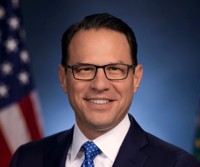
CVS
PHILADELPHIA - Three months after it started, a trial that will settle a long-running, nine-figure dispute over drug prices CVS Caremark charged is nearing a close.
A whistleblower working for Aetna sued CVS Caremark in 2014 under the False Claims Act, which allows private plaintiffs to act in the interest of the federal government in return for a significant percentage of whatever they recover.
In this case, Sarah Behnke alleged CVS Caremark, a pharmacy benefits manager, billed the Centers for Medicare & Medicaid Services for drugs at a higher price than Caremark paid other retail pharmacies. It was alleged Medicare paid $75 million more than it should have in 2012-2013.
Philadelphia federal judge Mitchell Goldberg conducted a bench trial in March then sent each side back to its corner. After supplemental briefing, this week he began closing arguments.
"Through eight days of evidence and 19 witnesses, Relator (Behnke) did not meet her burden of proof on any element in dispute," attorneys for Caremark wrote in their April 30 proposed findings of fact.
"Not only did Relator offer no 'smoking gun,' the evidence showed no scienter, because no Caremark employee knowingly submitted false claims; and no materiality, because the government knew the relevant facts and did not disagree with Caremark's price reporting."
Behnke was Aetna's head actuary for Medicare Part D and claimed Caremark violated federal law requiring PBMs to report so-called 'pass-through' prices and that the fraudulent claims cost Medicare and patients billions of dollars, dating back to 2007.
At issue are Generic Effective Rate guarantees, which ensure the cost of generic drugs from pharmacies stays below a certain threshold. Caremark had GER guarantees with Walgreens and Rite Aid, plus its own CVS Pharmacy.
The prices, alleged to be lower than what CMS was charged, allegedly violated law requiring Caremark to report them to CMS. Things got complicated as to how much was actually paid from Caremark's GER agreements and in what matter.
One transaction the plaintiff centered on was a $13 million transfer to CVS Pharmacy in 2016. Caremark says that was the result of increased pricing for "spread" commercial clients, not Medicare Part D.
"There is no evidence of payments in any other year," Caremark said. "Thus, budgeted GERs were merely targets with no consequences if not met."
Behnke says this payment was to meet the overall GER with CVS Pharmacy, and negotiated prices are supposed to be reported.
"Caremark understood the budgeted CVS Pharmacy Overall GERs were the prices it would pay, in total, changed individual drug prices for commercial lock-in clients to ensure those Overall GERs were achieved (just as for Rite Aid and Walgreens), and closely managed to those Overall GERs, including paying (at its own cost) $13 million more to CVS Pharmacy in December 2016 to achieve the budgeted CVS Pharmacy Overall GER," wrote Behnke's attorneys from Berger Montague and Miller Shah.
Those lawyers want Goldberg to find Caremark violated federal law and award $338 million in damages, the net amount they says CMS overpaid by not being aware of the deals with other pharmacies.
Should that happen, Behnke and her lawyers would be in line for a huge payday. The federal government had the option to join her case but did not. Rewards for whistleblowers top at 25% of the recovery when the government joins, but goes up o 30% when it does not.
Caremark, in its defense, says the plaintiff can't actually show what it was paid by Rite Aid and Walgreens, and that one-time $13 million payment back to CVS Pharmacy was to "align the budget assumptions of Caremark and CVS Pharmacy, which rolled up into CVS Health's consolidated financial reporting."
Enu Mainigi and others at Williams & Connolly in D.C. represent Caremark.




